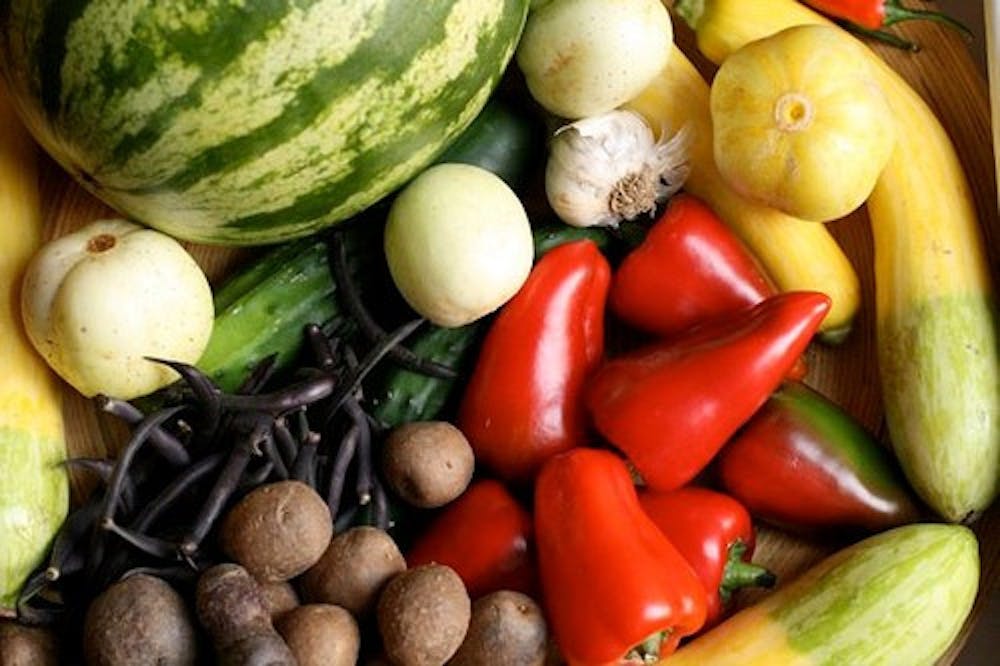
Oxford foodies and environmentalists alike have a lot to look forward to with the creation of a Food Studies Institute, which was recently approved by Miami University. The Institute plans to educate students, faculty and staff, and community members about organic farming by building a university farm and creating a food studies minor.
On Tuesday night, MUFSI (Miami University Food Studies Institute) held an open forum to discuss its development as a new institute on campus.
Biology professor Alfredo Huerta and Peggy Shaffer of the Institute of Environmental Sciences—the leaders behind the initiative—gave a presentation on their visions for the Institute, and encouraged suggestions from the community.
Their goals, while still in the works, are exciting and focus on students and food education. Huerta and Shaffer, along with a team of supporters, plan to create a university farm and experiential education center, which they hope will house a nutrition science kitchen; build an interdisciplinary food studies curriculum; establish community partnerships and workshops; and create new research opportunities, especially for undergraduate students.
The Provost’s Innovation and Interdisciplinary Fund granted the project funding for three years, and Huerta and Schaffer are already mapping out plans to grow the Institute to its fullest.
The first year will be used to set a foundation for the Institute, including symposiums and seminars, recruiting potential sponsors and donors to keep the project going after three years, and identifying places to build the farm.
The next two years, under their current plan, will be dedicated to establishing a curriculum for the food studies minor and creating research opportunities, especially for undergraduate students.
Huerta and Shaffer highlighted several courses from past semesters at Miami that would fit with the food studies minor, in departments ranging from Anthropology to Biology to English to Kinesiology. They encouraged an interdisciplinary outlook on the minor, and especially stressed the ability to write about food and sustainable agriculture.
Along with academic goals, the Institute will provide hands-on experiences in farming by employing sustainable agriculture practices, which may include permaculture and hydroponics. Huerta and Schaffer also hope to make the farm sustainable by developing an on-campus composting facility. Rather than send off the nearly 5,000 pounds of food waste generated by the Demske Culinary Support Center each week, the waste could be revitalized as fuel for the farm.

As of now, fruits and vegetables will be organically grown at the farm. However, ideas of chickens and beekeeping are also being considered. The Institute plans to sell its products to the Demske Culinary Support Center to be served on campus.
The Food Studies Institute is still under works, but its ideas are promising and exciting. At a time where population is increasing and the environment is changing, Huerta and Shaffer argued, knowledge in sustainable food production and distribution will be beneficial for students knowledge-wise, as well as career-wise.
Huerta and Shaffer plan to have a website up soon with more information about the Institute. But for now, they are open to suggestions and encourage thoughts from the community. As their presentation stated: “Not even the sky is the limit!”
New Food Studies Institute at Miami to Farm, Feed, and Educate Oxford

